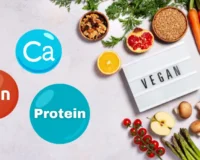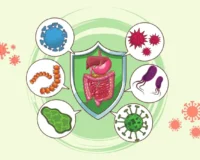Plant-Powered Nutrition Unveiled: Debunking Iron, Calcium, and Protein Myths
Embarking on the path toward a vegan lifestyle is often a transformative and personal journey. As someone who used to savor chicken dishes and relish the flavors of meat-based meals, my transition to veganism was a significant shift. In this article, I would like to share my personal story of how I evolved from a meat-eater to a compassionate advocate for plant-based living. Join me as I recount the key moments and discoveries that shaped my journey toward embracing a vegan lifestyle.
1. A Change of Perspective:
It all began with a simple realization: my choices had consequences. The more I learned about the environmental impact of animal agriculture, the ethical concerns surrounding factory farming, and the health benefits of a plant-based diet, the more compelled I felt to make a change. I began questioning the ethics of consuming animal products and sought a better way to align my actions with my values.
2. Exploring New Horizons:
As I embarked on my vegan journey, I discovered a world of culinary delights that extended far beyond my previous non-vegan meals. I started exploring various plant-based foods, experimenting with vibrant fruits, vegetables, legumes, and grains. Chickpeas became a staple in my kitchen, offering a versatile and protein-rich ingredient that replaced meat in many of my favorite recipes.
3. Discovering Compassion:
As my awareness grew, so did my empathy for animals. I couldn’t ignore the suffering endured by animals in the food industry any longer. The more I learned about the conditions in factory farms and the inherent cruelty of the system, the more I realized that my choices had the power to make a difference. By choosing plant-based alternatives, I could contribute in a small way to a more compassionate world.
4. Nurturing My Health:
One of the most surprising and rewarding aspects of my vegan journey has been the positive impact on my health. With a well-planned and balanced vegan diet, I discovered that I could maintain optimal nutrition while reducing the risk of certain chronic diseases. I learned to appreciate the vast array of micronutrients – vitamins, minerals, and antioxidants – found in plant-based foods, enhancing my overall well-being and vitality.
5. Finding Support and Community:
Transitioning to a vegan lifestyle can sometimes feel overwhelming, especially when faced with societal pressures and differing opinions. I was fortunate to have a family that supported me unconditionally throughout the transition. I also found support in connecting with like-minded individuals. Whether through online communities, local vegan groups, or attending plant-based events, I discovered a network of individuals who shared similar values and experiences. The sense of community provided encouragement, inspiration, and knowledge.
Becoming a vegan has been a transformative journey, guiding me to a more conscious, compassionate, and sustainable way of living. From my initial awareness of the environmental and ethical impacts of animal farming to embracing a varied and vibrant plant-based diet, I’ve experienced a profound shift in my perspective and choices. My transition has not only impacted my health but also allowed me to contribute positively to animal welfare and the environment. If you’re considering a similar journey, know that it’s a path of growth, discovery, and abundant rewards for both yourself and the world around you. Embrace the power of plants, and let your veganism journey be an empowering and fulfilling experience.












